|
Sharing a post from QUORA in which the question is: How can I reduce stress when I live in a very stressful environment? (I'm 20, student, living with my parents and siblings. I have crippling anxiety and I feel frozen most of the time. My life is being wasted like this) Our reaction to stress is often a learned and repeated response, so we do have the ability to reprogram ourselves to handle our responses to people and environments in a more constructive manner. The stress reaction is a choice, in part, that we make each moment of everyday. We can decide that we will not be angered, upset or triggered by the events happening around us. It requires a commitment to changing our pattern of behavior, so it will benefit us, rather than causing us harm.  Photo by Radu Florin on Unsplash.com Photo by Radu Florin on Unsplash.com Start with something small at first, some action on the part of someone else that always causes a negative reaction. Focus on letting go of that immediate response, determine to observe the situation and let the moment pass. With time we become more adept at this process and can begin to take control of how we interact with the world.
Another piece of the stress puzzle is our learned physical reactions to stimuli, which creates neural circuits in the brain that lead to unpleasant sensations in the body, such as pain and chronic pain. The work of Alan Gordon, Dr. Howard Schubiner among others describe methods for changing these neural circuits in the brain called Pain Reprocessing Therapy, or similar therapies. These methods, which can be implemented by the individual or with the help of a therapist is showing some very positive results in recent studies. QUORA post.
0 Comments
 Chronic tension, also known as chronic stress, can wreak havoc on the human body. When we encounter stressors, our autonomic nervous system (ANS) responds by activating the sympathetic nervous system (SNS), which triggers the fight or flight response. This response is essential for survival in acute situations, but when stressors become chronic, it can cause damage to our bodies. One of the primary ways chronic tension damages the body is through inflammation. When the SNS is continuously activated, it can lead to an overproduction of inflammatory cytokines, which are proteins that cause inflammation. Chronic inflammation has been linked to numerous health problems, including heart disease, diabetes, and cancer. Chronic tension can also lead to muscle tension and pain, as well as headaches and migraines. When the SNS is activated, it causes muscles to contract and can lead to chronic muscle tension. This tension can lead to pain and discomfort, as well as headaches and migraines. The SNS can also disrupt our sleep patterns. Chronic tension can cause insomnia, difficulty falling or staying asleep, and can lead to daytime fatigue and exhaustion. Lack of sleep has been linked to numerous health problems, including obesity, heart disease, and depression. Lastly, chronic tension can also affect our digestive system. When the SNS is activated, it can slow down digestion, leading to constipation and other digestive problems. Chronic tension can also cause acid reflux and other gastrointestinal issues. In conclusion, chronic tension created by the autonomic nervous system can cause significant damage to the human body. It can lead to chronic inflammation, muscle tension and pain, disrupted sleep patterns, and digestive problems. It's important to find ways to manage and reduce chronic tension to prevent long-term damage to our bodies. Some effective strategies for reducing chronic tension include exercise, mindfulness practices like meditation or yoga, and seeking support from a mental health professional. Serious lifestyle changes may be required to reduce the chronic state of fight or flight and ensuing tension.  Stress is a normal part of life. Everyone experiences it from time to time. However, when stress becomes chronic, it can have a negative impact on your physical and mental health. Chronic stress is defined as stress that lasts for more than six months. It can be caused by a variety of factors, including work, relationships, finances, and health problems. When you're stressed, your body releases a number of hormones, including cortisol. Cortisol is known as the "stress hormone" and it can have a number of negative effects on your body, including: * Increased blood pressure * Increased heart rate * Muscle tension * Fatigue * Difficulty sleeping * Headaches * Digestive problems * Weight gain * Impaired immune system * Increased risk of heart disease, stroke, and other health problems Chronic stress can also lead to mental health problems, such as anxiety, depression, and post-traumatic stress disorder (PTSD). If you're experiencing chronic stress, there are a number of things you can do to manage it, including:
It's important to remember that you can't control all of the stressors in your life, but you can control how you react to them. By managing stress, you can improve your physical and mental health and live a happier, healthier life. Here are some additional tips for managing chronic stress:
If you're struggling to manage chronic stress on your own, don't hesitate to seek professional help. A therapist can teach you coping skills and help you to develop a stress management plan that works for you. 2/9/2022 How much does chronic stress impair working memory? Should I just give up on life since I can't seem to manage my anxiety?Read NowChronic stress greatly impairs the mind's ability to retain information. Here is an answer added to the Quora Mind-Body & Chronic Pain space.  When we are under stress our minds do not function as well as they should. We are too busy managing the stress to be fully engaged and effective. All processes, such as reason, logic, problem solving and memory are negatively impacted.
Chronic stress is a common complaint, but no one should give up on life because of it. Here is a process that can be followed to relieve chronic stress. 1 Write a list of all the current Demands we have including all of the internal (physical and mental health) and external (environments and people) stimuli that require attention and action from us. 2 Decide what methods can be used to reduce Demand and the stress reaction we have to it. I’ve attached links to a simple spread sheet (Excel and CSV versions) that can be used to record our Demands, and make choices about how to proceed with them, in order to lessen the stress caused by our set of Demands. Demand Review Spreadsheet - Excel Demand Review Spreadsheet - CSV We can control our stress, by reducing our exposure to Demand.  How do you stay in the present when dealing with anxiety? It’s different for every person. I try to find enjoyment or at least some sense of accomplishment in what I’m doing at each waking moment. Even for things I would rather not do, such as chores or dealing with a difficult situations or people. If our present is pleasing and fulfilling, we are less likely to spin off into ruminating over the past or worrying, needlessly about the future. Make some plans, adjust as necessary and let go of the idea that thinking endlessly about the future will somehow change it. Easier said than done, I know. We need to know our stress levels, because that would tell us whether we needed to act. 
We do such a pathetic job in the United States of teaching people to care about their own mental and emotional health. There is often a hyper focus on physical health with little understanding that optimal physical health depends on a healthy mind. When we recognize that the demand in our lives overwhelms us, we’re given an opportunity to change things for the better. Adopting a practice of reviewing the demand we face, seeing how it effects us emotionally, then taking steps to make different choices, empowers us to live our best life. This was first posted in the Mind-Body & Chronic Pain space on Quora. I hope you all enjoyed the Go Slow series and you have discovered ways to take back some control of your focus, thoughts and time to help regain a sense of purpose and safety in your life. Here's a recap slide: Peace...
|
Details
BLOGAuthorAfter trying every conventional therapy for crippling, chronic low-back pain, I discovered the problem was completely within my control. I experienced an amazing health transformation in a matter of weeks. Mind-Body medicine worked for me, and it can for can too! Archives
August 2023
Catagories
All
|

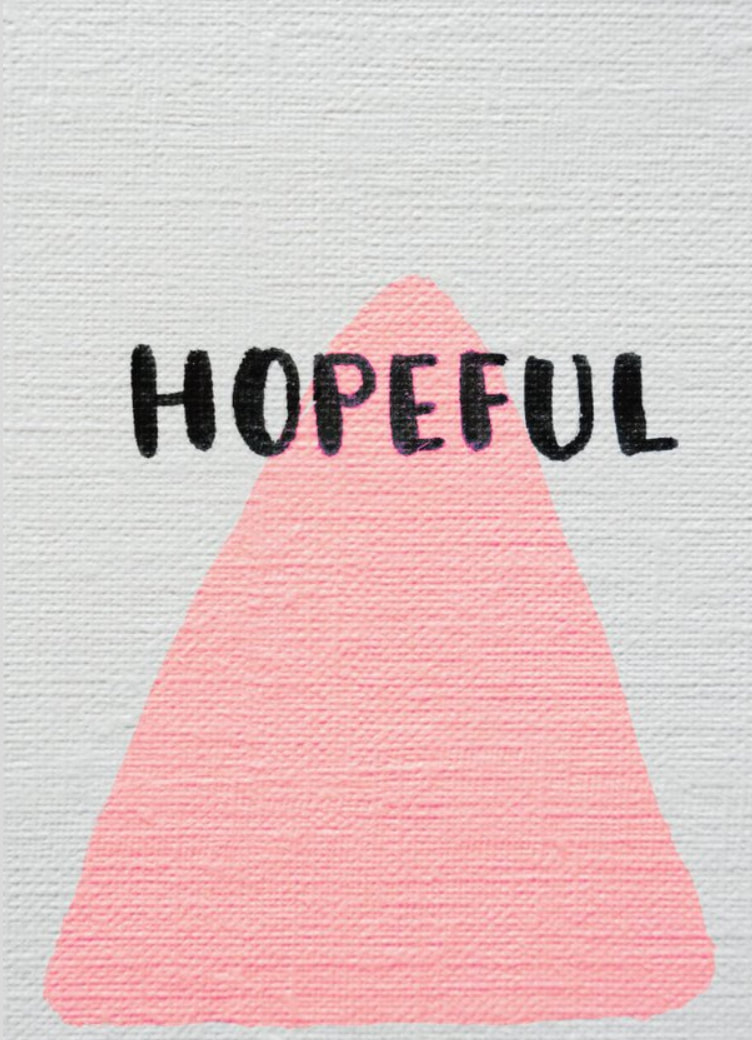

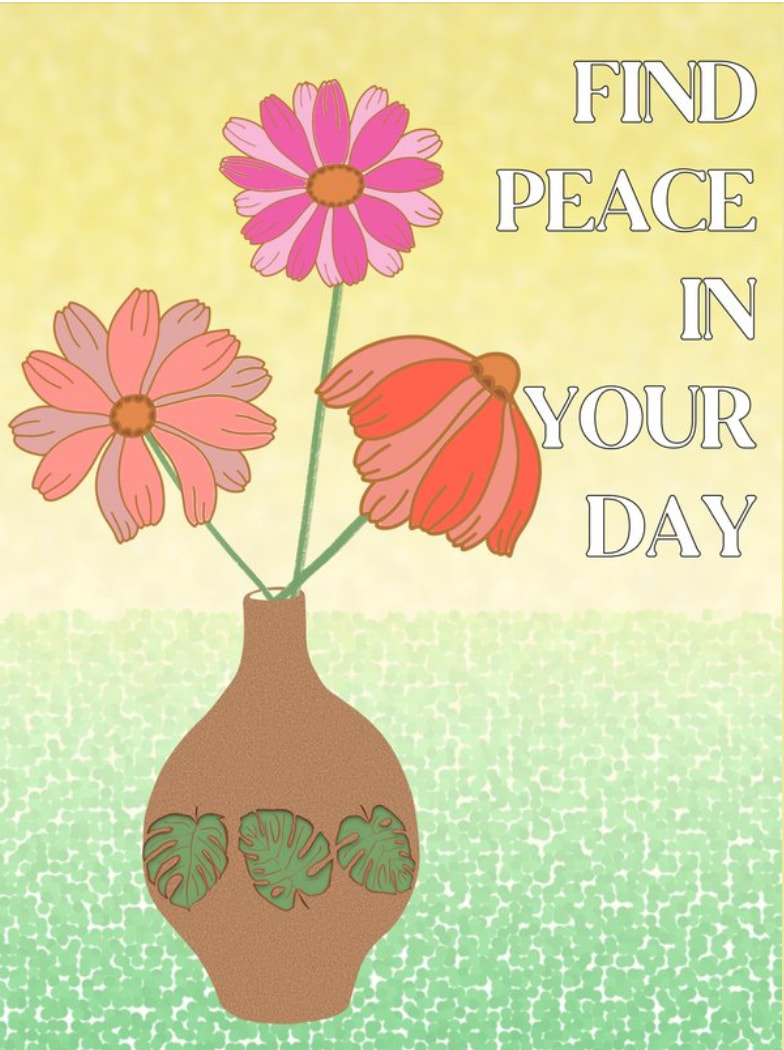
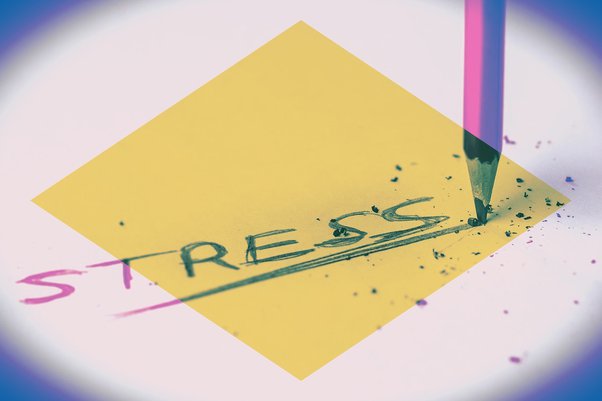
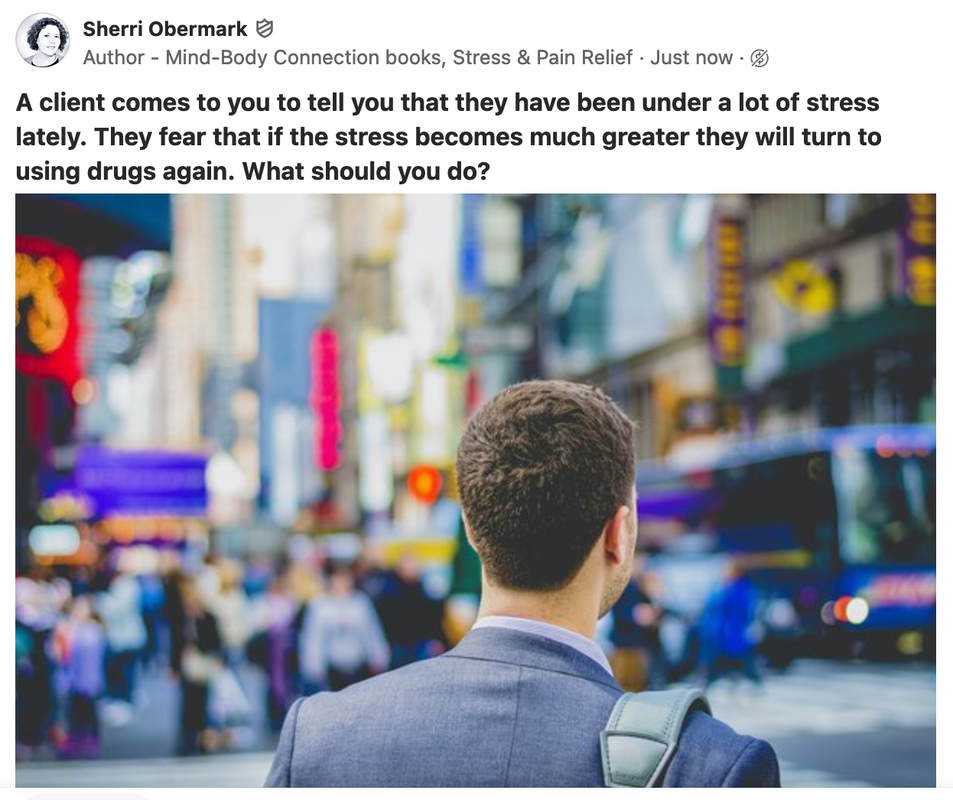

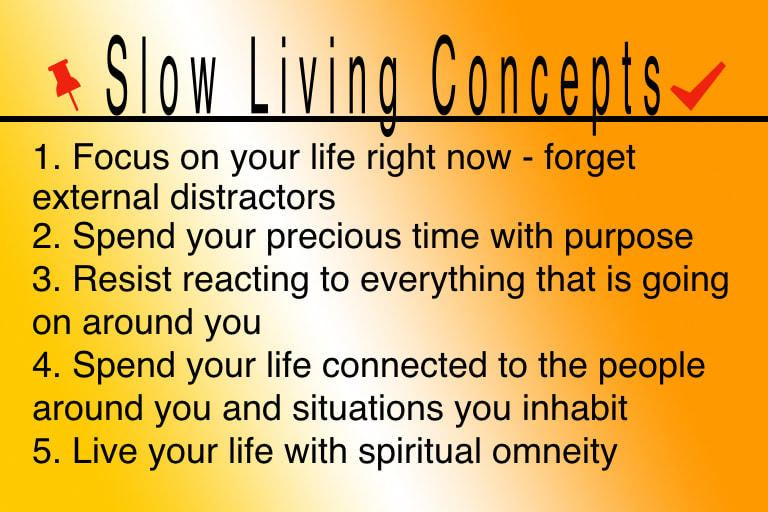
 RSS Feed
RSS Feed